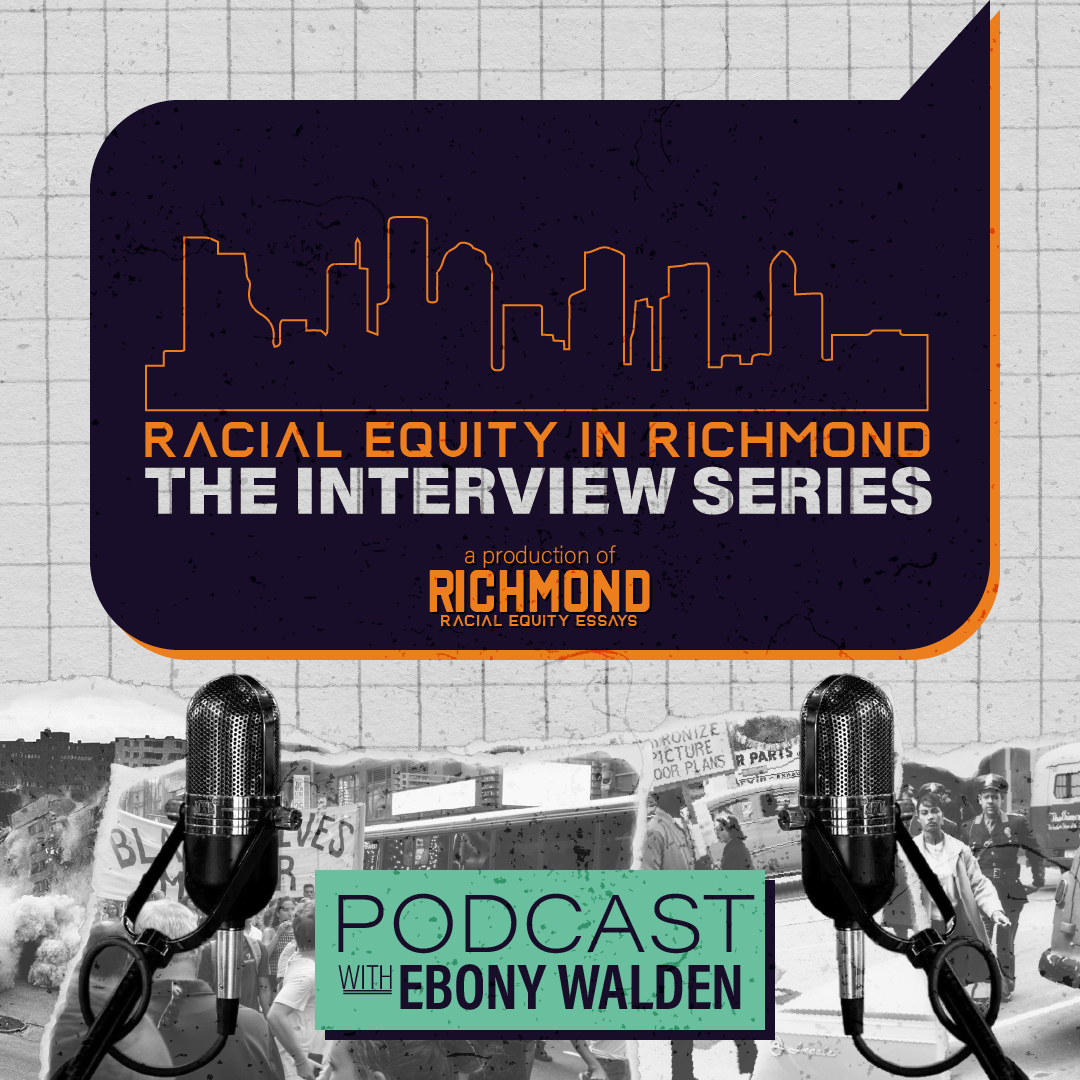
Racial Equity in Richmond: Episode 5: Affordable Housing Policy and Advocacy
Document Type
Video
Original Publication Date
2021
Loading...
DOI
https://doi.org/10.21974/33ys-r566
Date of Submission
December 2021
Publisher
Richmond Racial Equity Essays
Abstract
From discussing the impacts of redlining to combatting the eviction crisis, affordable housing advocates Stephen Wade of Partnership for Smarter Growth and Virginia Poverty Law Center’s Laura Wright make their case for policy changes and greater resource allocation to move towards housing equity.
Rights
© The Author(s)
Closed caption file
05 RREE - Laura and Stephen.mp3 (36769 kB)
Audio file





Comments
Interview series, part of the Richmond Racial Equity Essays project. In this podcast, urban planner and diversity, equity and inclusion consultant Ebony Walden talks with 15 Richmonders from all walks of life and sectors to explore their visions for an equitable Richmond, especially as it relates to racial equity, and the strategies that will help us get there. We hope this can be a model for discussion in other U.S. cities.
Stephen Wade:
Stephen Wade currently works for the Virginia Department of Social Services on making substance use disorder (SUD) prevention, treatment, and recovery more equitable and accessible, with a particular focus on child welfare systems, housing, and the criminal legal system. Stephen is passionate about providing housing for all that is safe, healthy and affordable by using a health equity lens that empowers and centers communities that have traditionally had the least access to resources and power. Stephen is also the Vice President of the board of directors of Partnership for Smarter Growth.
Laura Wright:
Laura Wright is a housing attorney with the Virginia Poverty Law Center (VPLC). Using a community lawyering model, Laura works with advocates and organizers to build networks within high eviction neighborhoods to assess the greatest housing needs, provide know your rights trainings, and refer clients to partner organizations for emergency legal assistance. In consultation with effected communities, Laura advocates for state and local policies that improve housing stability, expand access to civil legal services, and produce and preserve affordable housing.